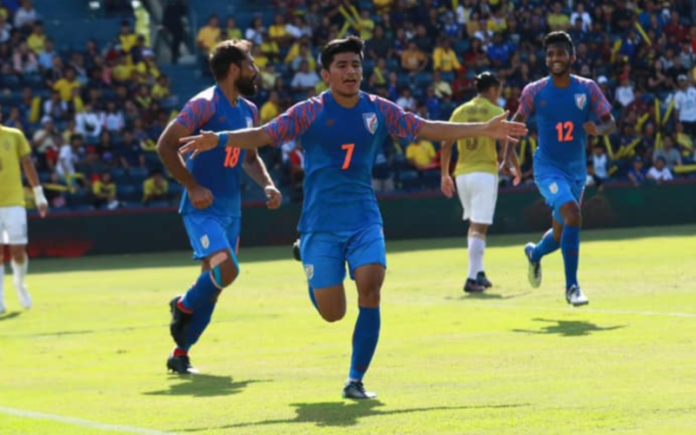By Akhil Rawat
NEW DELHI: When India last participated in the King’s Cup in Thailand in June 2019, it was, in a sense, the beginning of a new era. After an excruciating last-minute exit from the AFC Asian Cup group stage just five months before, Igor Stimac took charge, kicking off the next cycle for the Blue Tigers.
That cycle is now close to its business end. Everything over the last four years has been building up to the 2023 Asian Cup, including India’s next engagement at the 49th King’s Cup from September 7-10. If the previous tour to Thailand was a postscript to the disappointment in the last Asian Cup, this one is set to be a prelude to next year’s edition.
The Indian team which took on Curaçao in the semi-final had many new faces, not only among the coaching staff but also on the pitch. Stimac, on his debut in the Indian dugout, handed out first international caps to as many as six players, some of whom have went on to become mainstays in the Indian team. Three of them started – Rahul Bheke, Brandon Fernandes and Sahal Abdul Samad, who won a penalty which was dispatched by Sunil Chhetri. Raynier Fernandes, Michael Soosairaj and Amarjit Singh Kiyam came on in the second half.
Although the 82-ranked Curaçao side, with a majority of their squad plying their trade in the Dutch league, made a rampant start, putting three past the unsettled Indian defence before half-time, it was the second-half performance that Stimac appreciated.

“Curaçao had players with great stamina and technical skills. Although we entered the game in a poor way, we responded in the second half with a few changes. Our youngsters played some fearless football, and we were very proud of them,” said the Croatian.
The defensive problems were no more. The new-look India started to gel and had more scoring opportunities than the Caribbeans after the break. Perhaps a comeback could’ve been on the cards if Chhetri wasn’t unlucky to see his header come off the post. Nevertheless, the 1-3 defeat wasn’t a performance to be disheartened about.
It was an even newer-looking India against Thailand in the third-place play-off, with eight changes in the line-up. And this time things clicked from start to finish as the Blue Tigers bagged the bronze with a 1-0 win. Chhetri did not take part, as he will not next month as well, and Farukh Choudhary and Balwant Singh led the attack. The lone goal, however, came from Anirudh Thapa, who tapped in a low cross from Adil Khan at the far post early in the first half.

Thapa’s only previous international goal had also come against Thailand in the resounding 4-1 win which opened India’s Asian Cup campaign. While that was India’s first win at the continent’s showpiece event in 55 years, the King’s Cup victory at the Chang Arena in Buriram was the first success against Thailand on Thai soil.
Adil, making his first India appearance in over six years, marked his resurgence in the national team by forming a solid partnership with Sandesh Jhingan at the back. “Adil played a magnificent game with Sandesh,” remarked Stimac. “We defeated Thailand with a totally different team where Sunil was not involved. I left most of the boys from the first game on the bench, and we came out practically with the reserve team.”
India have been drawn against the highest-ranked side in the competition, Iraq, in this year’s edition too. Thailand and Lebanon will contest the other semi-final. The difference this time, however, is the momentum India is carrying into the competition. Stimac’s men have not lost this year and are fresh from the SAFF Championship and Intercontinental Cup triumphs at home.
The similarity will be skipper Chhetri’s absence. The third-place play-off against Thailand was the last time India won a match without their talismanic striker. In the five such instances since then, India have drawn two and lost three. Stimac, who admitted Chhetri’s absence at the King’s Cup will be an opportunity to try out different things in attack, will hope to return with another podium finish.
-AIFF




